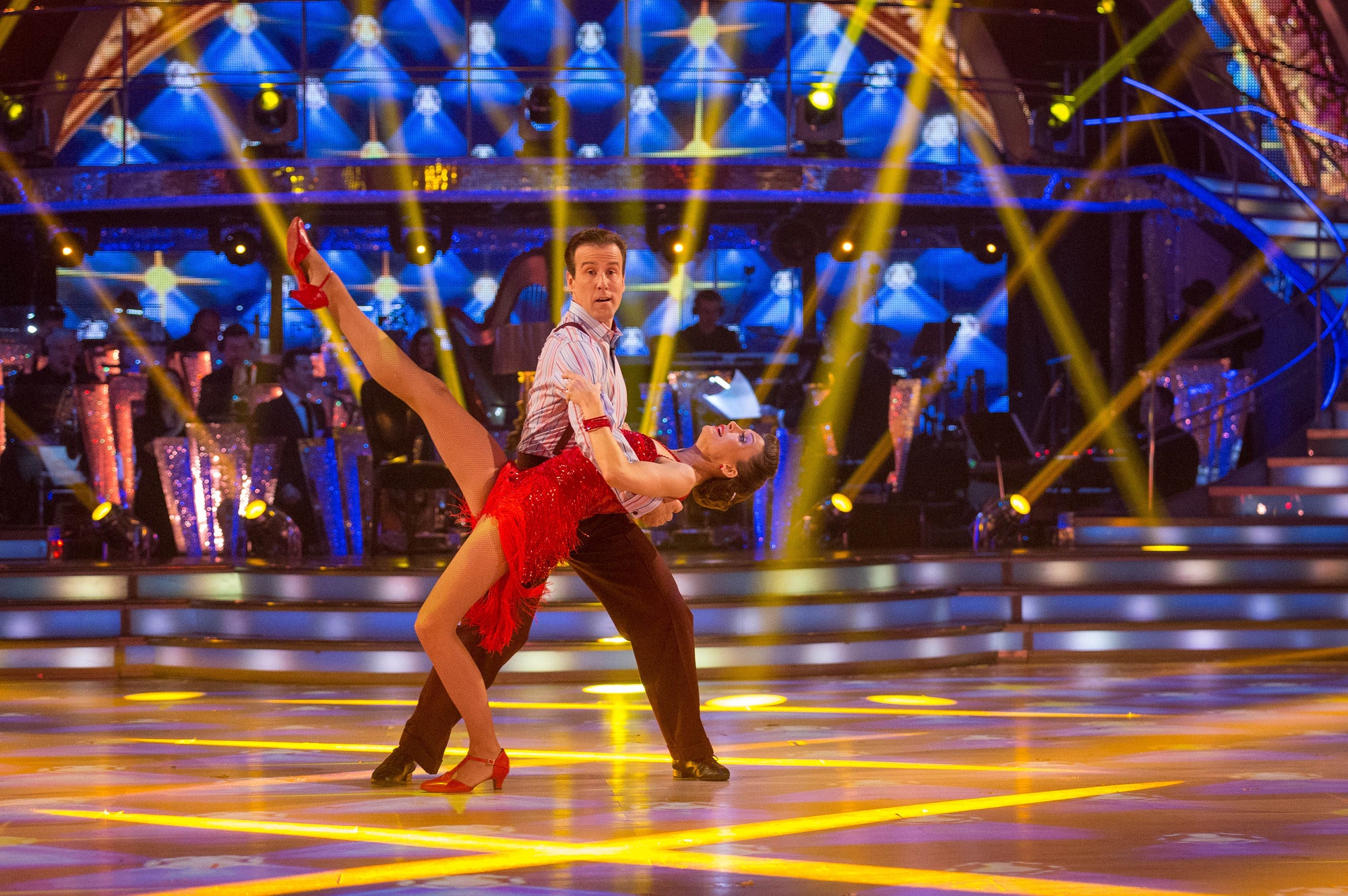Competing on ‘Strictly’ basically means you’re dancing to fame’s tune
If Brian Cox really cared about kids learning about space, he’d show his bottom in snug spandex


Candid remarks are a risky business these days, so it was rather thrilling to hear Newsnight’s Emily Maitlis talk of internal BBC pressure to foxtrot and flamenco in its biggest flagship show: “A BBC manager once said that – as a woman – if I wanted my career to go to the next step I would have to do Strictly Come Dancing.”
Of course, the BBC boss – who remains nameless – was absolutely right about the stellar properties of Strictly: a Cambridge degree, 15 years in the newsroom and the nerve to harangue Cabinet ministers live on late-night BBC2 can take a political news anchor only so far in the public conscience these days. It’s exactly the same for famous people of all genders and walks of life.
If a person – male or female – wants their name to be publicly recognisable, their bank account brimfull of whopping pay and everyday folk in Morrisons, Doncaster, to pick up their cookery book, misery memoir or workout DVD, then they’ll need to be seen almost nude of a Saturday night. We want them spray-tanned a Sienna X midnight bronze shade and doing a soft- shoe shuffle to an orchestral arrangement of “Rhythm of The Night” by Corona.
I’m sorry if the truth is unpalatable, but I don’t make the rules. The general public makes the rules – the BBC merely reflects it – and what the public really, really loves is Strictly Come Dancing. But with Strictly, in particular, I feel something curious is afoot within the national psyche.
Let us first squash the notion of sexism here; we are just as keen to see goalkeeper Peter Schmeichel, former war reporter Jeremy Vine, Olympian Louis Smith or newsreader Nicholas Owen in this state of quasi-humiliation. It is as if we cannot fully tolerate or embrace our intelligentsia or sports heroes until they show us their soft, starry, sequined underbellies.
In the Eighties, British viewers were prepared to wait 365 days for their yearly Children In Need glimpse of a serious newsreader doing some sort of cabaret in fishnets and a top hat. Now we want it once a week on primetime and five times a week on a BBC2 spin-off show. I call this loss of deferred gratification “Quality Street green triangle” syndrome. Thirty years ago, we waited desperately all year long for Christmas Day to get our hands on that chocolate. Now they sell them in big boxes by the till in WH Smith at Newport Pagnell service station. We’ve lost something there, somehow.
The public’s need to see the frothy side of famous faces is seemingly insatiable. With some irony, if tennis legend Andy Murray really wanted his career “to go to the next level”, he should put on tight trousers and mangle his way through the Argentine tango. Only then will the public stop muttering about Murray’s apparent dourness, arrogance, withdrawnness, or any of the other emotions which occur when one is focused on being very good at something.
If Julian Assange hopes to achieve the broad-based respect he feels his mighty genius deserves, he needs to get his people to call Strictly. If Professor Brian Cox really cared about kids learning about space he would have shown us his bottom in snug spandex by now. His refusal to is, in my opinion, somewhat selfish. By the same turn, Emily Maitlis could swot up all day long about historical Syrian border disputes and the correct pronunciation of the name of China’s Deputy Finance Minister, Bluiese Cheong; it would not impact one iota on her public persona or pay grade.
Of course, the enormous risk with dallying with Strictly is that one’s stock can go down as well as up. Not, I stress, one’s financial stock; there will always be more reality TV to sign-up for now that you have the “look at me” bug. But Strictly leaves its children, as far as I can see, in a peculiar state of introspective flux. It lures listless, stuck-in-a-rut, under-appreciated celebrities out of the woodwork, matches them with a professional dancing goddess or a chisel-chested Apollo. It gives the celeb a punishing, confidence-building exercise schedule leading them to drop 16lb in the first month and feel utterly alive. They’re thinner, bendier, and – let’s be frank – hornier. If my other half announced that he was off to dance 13 hours a day with a perma-tanned 110lb Brazilian, and would probably be busy most nights doing spin-off interviews and background filming, I’d cut my losses and send his belongings in bin bags immediately to the Premier Inn. Few people’s willpower can survive this.
But aside from lust, there is something about Strictly that leads its contestants to feel “I am more than the category life has put me in”. Suddenly, they are not merely an ex-rugby star, a jobbing Countryfile presenter, a WAG or a staid, boring newsreader. They have gone to another level: they’re a sleek, prime-time, nationally recognisable, trained dancer, drunk on adrenalin, who might possibly be going on the hallowed Strictly arena tour.
They’re on Saturday Kitchen and they’re on front cover of Heat. They’re that sort of famous that my mother, or your mother, suddenly knows about them and will bring them up in your phone calls home as if they’re part of the extended clan. There isn’t this warmth for those who simply covered the Berlin Wall’s fall. Brains aren’t as revered as your skills at the bossa nova. It’s tempting to hate the players but we, the public, are refereeing this game.
Join our commenting forum
Join thought-provoking conversations, follow other Independent readers and see their replies
Comments
Bookmark popover
Removed from bookmarks